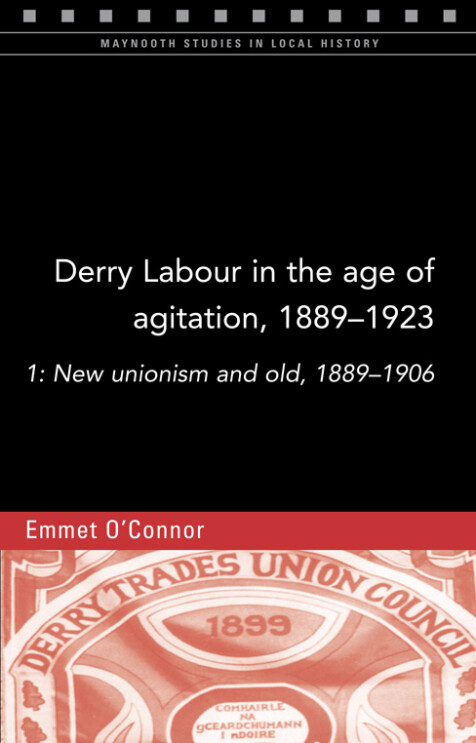Derry Labour in the age of agitation, 1889–1923: volume 1
New unionism and old, 1889–1906
Emmet O'Connor
Derry was ‘a prosperous town’ in 1905, according to the Board of Trade. Since 1851, its population had almost doubled, and it had acquired a university college, an opera house, a new city hall, a fire-brigade, a public park, and a tramway. The transport infrastructure was good, with four railway systems and regular cross-channel steamships. Cluttering its streets were grain and flour mills, bacon cellars, distilleries, a shipyard, iron foundries, coach works, and 27 shirt-factories which made Derry the UK’s leading centre of shirt-making. Who and what were the people who laboured to produce this image of prosperity? Where did they come from, how did they live, what did they eat, how much did they earn, and how did they try to improve their conditions?
Part of the Maynooth Studies in Local History series (Raymond Gillespie, general editor). The studies in this series range widely, both chronologically and geographically, over the local experience in the Irish past. They are at the forefront of Irish historical research and represent some of the most innovative and exciting work being undertaken in Irish history today. They provide models that others can follow up and adapt in their own studies of the Irish past, allowing us to understand better the regional diversity of Ireland and the social and cultural basis for that diversity. For a list of all titles published in this series to date, click here.
Between 1889 and 1923, Irish Labour was revolutionized by three waves of agitation. This booklet looks at the first of these, the new unionism of 1889–91, its impact on Derry, and its aftermath to 1906. It was a time of trade union organization, strikes, May Day parades, a procession of visiting socialist orators, and Labour politics. It was also a time when the usual employers’ response to wage demands was dismissal and strike-breaking.
Part of the Maynooth Studies in Local History series (Raymond Gillespie, series editor)
Emmet O’Connor lectures in history in the University of Ulster and has published widely on labour history.

